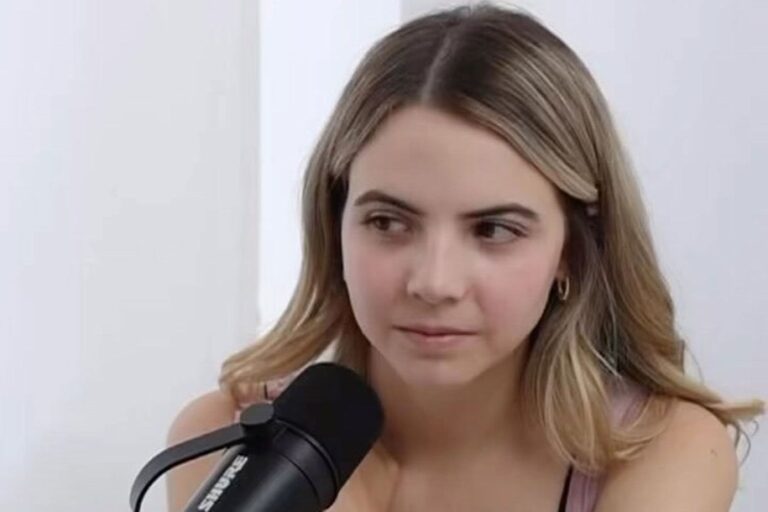“A musician who you know for music is being interviewed on a platform about music talking in detail about music, about his passion and what he’s known for but we’re like, ‘Why does he keep doing that?’ But if I was on here gossiping and talking about so and so who got beef, people will feed into it, but it’s like, ‘No, we gotta get back to talking about music.'”
That impassioned speech came from Tyler, the Creator in his most recent interview with legendary music interviewer, Nardwuar. Breaking the show’s usual format where artists are given a gift personal to the historical beginnings of their music, Tyler said, “We need to stop fucking going sneaker shopping or deep throating hot wings for an hour. Talk about your album. Talk about music, talk about the 15 songs that you guys have spent time getting mixed and mastered and putting your heart into,” he said.
Awkward and entertaining interviews have been solidified in our cultural lexicon for decades. Zach Galifianakis in his show Between Two Ferns and Eric Andre’s chaotic talk show were perhaps two of the first mainstream examples of it. Instead of talking about projects or any type of success artists had experienced to date, the shows were a back and forth of insults and strange stunts between the interviewer and interviewee.

More recent iterations of awkward interviews come through Amelia Dimoldenberg and her lesser-talented copycat, Bobbi Althoff.
Bobbi Althoff in particular has seen her fair share of controversy and criticism in the last year. On her show, ironically titled The Really Good Podcast, she interviews high-profile artists in a strained manner. The schtick is that she is an anti-fan, often appearing with arms crossed and little to no knowledge of the artist she’s interviewing. It’s all for entertainment purposes, never about the music. When asked why she did this, she told the hosts of Women on Top, “Myself doesn’t get views, I had to [go] where the money was.”
And where the money has proven to be, is at an intersection between shorter attention spans, viral videos, and celebrities.
Love Music?
Get your daily dose of metal, rock, indie, pop, and everything else in between.
It’s no secret that attention spans are getting shorter and our need for entertainment louder. Thanks to the fracturing nature of the internet and the dozens of social media apps available for consumption, audiences are constantly looking for the next thing to give them their daily dopamine hit.

As a result, most interviews have been scaled down to one-minute viral moments mostly surrounding an artist’s take on some global issue, on another artist or on something trivial and, dare I say it, stupid. Unless you look for it in the depths of Youtube, you’ll rarely see a viral video of an artist talking about the themes of their album.
Look at any music platform’s social media accounts, though, and you’ll see interviewers asking fun and trivial questions that rarely have anything to do with the actual artist being interviewed. Maybe they’re playing a game like underrated/ overrated, maybe they’re being asked what their favourite food is… the list goes on.
While some might argue that Althoff’s interview style is ironic, especially with its try-hard title, but the problem is that a lot of people seem to have stopped caring about the music. We’ve largely become more interested in how celebrities consume things, how they look and how they talk.
In her article ‘The Death of the Rude Youtube Interview’, Maddy Mussen quotes The Atlantic writer Jemele Hill. “[It] just sadly points out how real hip hop journalism has been practically erased. Some of the media teams behind these artists aren’t interested in them sitting down with credible people who know how to tell stories and do quality interviews. Then they wonder why an artist’s real story goes untold, neglected or that artist is misunderstood.”

It comes with the new age of social media and intensified parasocial relationships which sees fans forming intimate connections with artists even though they’ve never met them before.
And these days, being a mainstream music artist also comes with celebrity. They aren’t the same thing but they are heavily intertwined. Some musicians have successfully held onto their personal lives and personalities while others have found themselves becoming more a personality than a musician. Instead of letting the music tell their story, funny viral videos and awkward interviews do, and not well.
When Tyler, the Creator said “we got to get back to talking about music. We need to stop fucking going sneaker shopping of deep throating hot wings for an hour,” it was an idealistic statement. Whether it’s because of a change in what audiences want, the way in which social media promotes short viral videos, or whether the rules of fandom in a hyper-connected world are irrevocably altered (perhaps it’s all three), consumption has changed.
Yet there might still be hope. As Bobbi Althoff finds fewer fans and Amelia Dimoldenberg transitions to more music-oriented questions that are trying to uncover the multiplicity of artists, maybe the music side of things will come back and maybe audiences will have the patience for it.
The awkward interview may have found its peak, audiences finally catching on, but what’s next is for audiences to decide. Let’s hope we all don’t make the wrong choice.

































